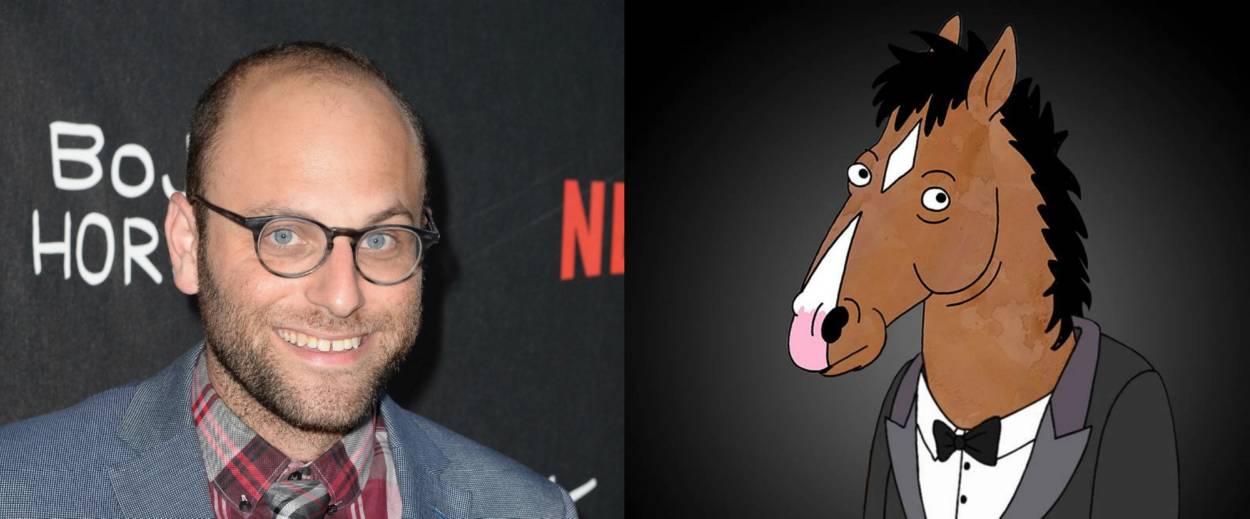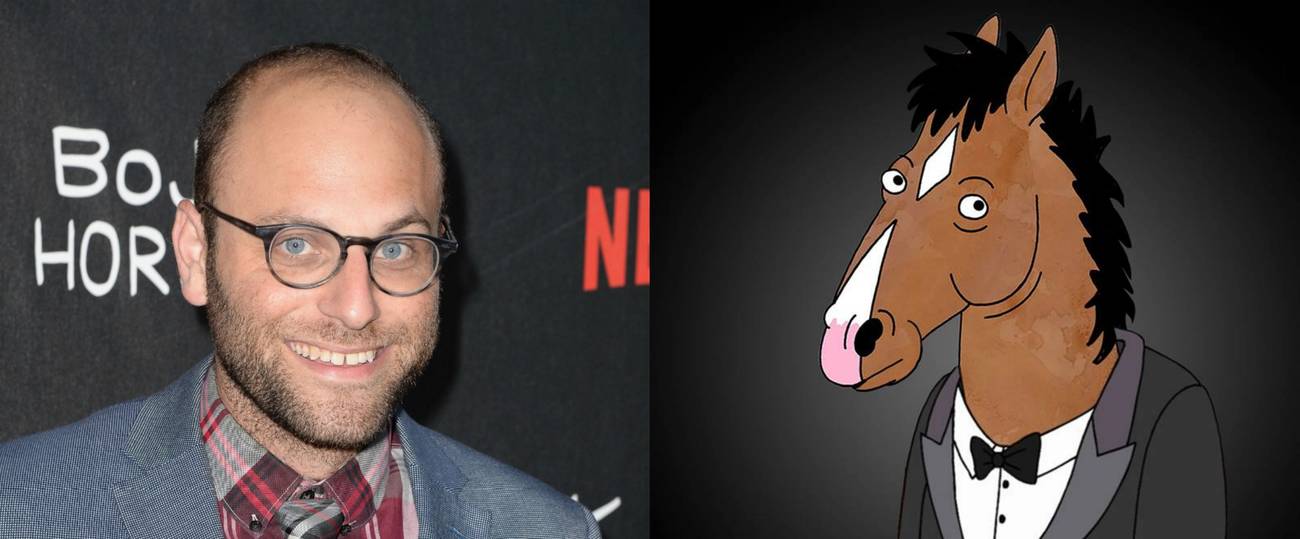The Jewish Man Behind the Crazy Little World of ‘BoJack Horseman’
Season 3 of Raphael Bob-Waksberg’s hilarious, animated comedy is out now on Netflix




Last Friday, the day Season 3 of BoJack Horseman was released on Netflix, I watched the entire, 12-episode run in one sitting. And I did it for you, Tableteers. After this Herculean feat, I’m happy to say that the animated misadventures and crushing depression of Bojack, a horse/man voiced by Will Arnett, once again, make the case that BoJack Horseman is one of the best shows on the air (or, uh, the Internet).
Season three of BoJack Horseman, if there’s to be any criticism of it, perhaps doesn’t have quite the stakes of the first two seasons, when Bojack’s soul hung in the balance every episode. In any case, it remains a wildly funny, often poignant take on modern happiness, and Episodes 4, 9, and 11 are among the best of the series. And at 24 minutes an episode, you can definitely put a season away in a day.
BoJack Horseman takes place in a world where anthropomorphized animals are normal members of society, which is played for laughs about as much you’d expect. Bojack is an aging horse living in Los Angeles, famous for his having been a loveable TV dad in the ’90s on the aptly titled Horsin’ Around. A lifelong asshole, Bojack spent the first two seasons trying (and usually failing) to make amends for past misdeeds and lobbying for the title role in his dream project, Secretariat. In the meantime, he drinks enough almost enough alcohol to kill a horse and wonders if success will bring him the happiness he so craves.
BoJack Horseman was created by Raphael Bob-Waksberg, who grew up in the Jewish community in Palo Alto, California. Bob-Waksberg created BoJack Horseman along with artist Lisa Hanawalt, whose drawings inspired him to create the show (Hanawalt now serves as producer and animator).
His mother and grandmother ran a Jewish gift store, while his father was an active advocate for Soviet Jewry. In an interview with The Times of Israel, Bob-Waksberg described his upbringing thusly:
Comedy was never dismissed as an inappropriate professional pursuit, and he always knew, based on Jewish tradition and cultural heritage, that comedy was an option for a Jewish person. “There was a warm and encouraging environment at home. My self-loathing and neuroticism are not because of my upbringing,” he jokes.
And there is something distinctively, undeniably Jewish about the show, especially in this new season. Besides multiple instances of characters de-Jewing their names to make them more viable in Hollywood (pop star Sarah Lynn née Himmlefarb) and the ever-present cultural references (a cookbook by “Philip Broth,” Chagall paintings, and a Jonathan Lethem ringtone), there’s an extended bat-bat mitzvah scene (“Yes two bats because she’s a bat,” a sign reads) that features Bojack downing Manischewitz.
Day to day, Bob-Waksberg’s Twitter account is a wealth of political activism, puns that didn’t make it into the show, and deeply affecting poems about Marge Simpson. But it’s not just the little in-jokes that makes BoJack Horseman unmissable. For me, at least, the story of a man (or horse) for whom each success brings a fresh wave of self-doubt and self-destruction hearkens back to old Hasidic tales about bitter, aging misers as much as it does Portnoy’s Complaint. And the constant animal puns—Bojack’s agent, a cat named Princess Carolyn who’s voiced by Amy Sedaris, owns a re-named copy of David Sedaris’ Me Meow Pretty One Day—recall the best days of Mel Brooks. It’s up to a vigilant viewer to catch the great background jokes that abound in this show.
The last fifteen years of prestige television (Mad Men, Breaking Bad, The Sopranos, etc.) is essentially the story of men with prodigious talents who are their own worst enemies. At once self-obsessed, self-aggrandizing, self-loathing, and transactional in their personal relationships, these protagonists have moved into the realm of comedy: Louie and all its knock-offs (I’m looking at you, Billy Crystal) tell the same tale of men who can’t get out of their own heads or out of their own way. Bojack Horseman is to those shows what the rabbit scene in Inland Empire is to sitcoms (albeit a bit more lighthearted): the conventions of these shows are so widely known and ubiquitous, so why not do it with animals? Is that any less absurd than the original idea? Maybe those men need to be knocked down a peg. Of course, Bob-Waksberg isn’t quite so unforgiving as Lynch, but we can attribute that to the warm Jewish upbringing he’s described.
Bob-Waksberg is, before anything, a student of television history. So much of what works on the show is his ability to take those well-worn tropes I mentioned before and turn them on their heads (a trait it shares with its oft-mentioned spiritual cousin, Rick and Morty), while also shuffling in little jokes about Joey Bishop and The Mary Tyler Moore Show. And while there can sometimes be a narrow haughtiness to a show’s cultural references (Portlandia) on Bojack Horseman, jokes are structured in such a way that even those who don’t quite get the reference can still appreciate them. That’s some serious talent.
Jesse Bernstein is a former Intern at Tablet.